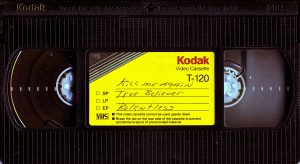It’s a global sentiment that young people have an unhealthy relationship with digital technology. It makes them less grounded in real life and even socially underdeveloped. Many young people even confirm these concerns themselves. In a recent article from the Akin by Sarah Johnson, research shows that 73% of Gen Z, especially the age cohort of 14–22 year-olds, report that their ‘digital life feels more real than their physical existence’. This shocking stat is likely to be (at least in part) a relic from the quarantine years that impacted an essential period for their social development. What should have been 4–6 hours of daily peer interaction became 8–12 hours of daily (often solitary) screen time. Identity formation through trial and error was replaced by algorithmic optimisation. Physical social skills development was substituted with platform-specific performance metrics.
Many young people yearn for a time before social media, and nostalgia has always been a big part of culture. Think the Teenage engineering medieval EP , the Bauhaus archive, and a big trend for Gen Z is currently the 90s/2000s but also indie sleaze (era between 2006 – 2012). What these brands that play into these sentiments do well though is that they mix old with a contemporary feel. This way it feels fresh and new. Although it sometimes looks like younger people (Gen Z) are more nostalgic than other cohorts, this is not necessarily the case. What is different however: nostalgia cycles are faster and secondly, references are way broader thanks to the internet, for example through archival pages like @webdesignmuseum.
Research from The New York Times found that 68% of Gen Z adults reported feeling nostalgic for eras before their lifetime. 73% percent were drawn to media, styles, hobbies or traditions from those eras, and 78% said they believed that new technologies and products should incorporate ideas and design elements from these periods. For brands, this isn’t a call to simply repackage the past, but to remix it. Gen Z responds best when heritage and retro aesthetics are given a fresh twist, blending familiar cues with innovation. Whether in fashion, design, or digital experiences, the sweet spot lies in creating products that feel both timeless and new.
However, nostalgia generally gets a bad rap. It is often characterized as an unproductive fixation on an idealized past that young people never lived, but in reality it helps people thrive in the present and build a better future. Many other scholars have come to this conclusion after conducting a wide range of studies, including laboratory experiments and quantitative and qualitative surveys involving a large variety of people from all around the world (New York Times, 2025). This body of research has found that nostalgic memories are often a source of comfort, guidance and inspiration. Even spending a few minutes reflecting on a fond memory or listening to an old familiar song can improve your mood, increase feelings of belonging and even a sense of meaning in life. We draw on it to resolve our dissatisfactions in the present and to move forward with hope and determination. Yes, nostalgia can be indulged. But for most people, most of the time, it is a stabilizing and energizing force.

Author
Meera Radhoe
Share the signal.











